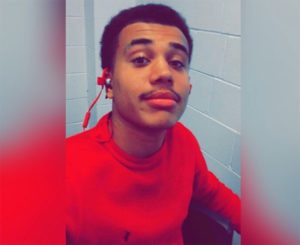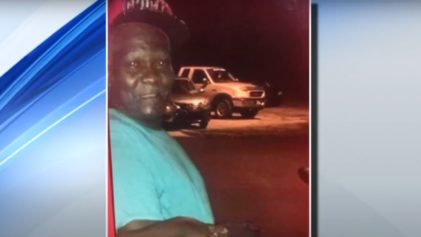
Media Takeout
A Black teen was killed Sunday night in Florida after calling police to say he was going to commit suicide.
It took one hour for police to show up, and they shot and killed Robert Dentmond in front of his apartment building. Nine Gainesville Police Department officers and Alachua County Sheriff’s deputies shot at the 16-year-old in the parking lot, where bullets flew through the building and affected residents there, according to Fusion.
Shirley Johnson told The Gainesville Sun, the officers, “put me and my daughter’s life in jeopardy in our own home. There is no way it took that many bullets to hit that boy when they had a clear shot.”
The teen was holding what was later called a “realistic replica of a semi-automatic rifle,” according to WCJB-TV. According to The Gainesville Sun, family and friends say Robert had been going through a tough period in his life, which would explain his 911 call. A GoFundMe page has been set up to support Robert’s funeral costs. Kevin Apple, Robert’s uncle, further described the teen as someone who “had given up on the world and felt like it was time for him to let go.”
Each officer involved in the shooting was placed on leave. The Gainesville Police Department, Alachua County Sheriff’s Office and the Florida Department of Law Enforcement are all investigating the incident, according to Fusion.
Unfortunately, this is only the next in a long line of police shooting Black men and boys. When previous incidents like this occurred decades ago, there wasn’t always a camera around to show an unbiased account of the occurrence. It’s just since the 2012 shooting death of 17-year-old Trayvon Martin that these episodes have been put on display to the general public. Talks of requiring police officers to wear body cameras shows there have been efforts to give biased police officers more accountability. Protests and the #BlackLivesMatter movement have made the anger of the Black community known, yet Black killings continue to be reported.
According to a 2015 Gallup poll, 45 percent of non-Hispanic whites no longer believe that relations between whites and non-whites are good, compared with 72 percent who believed so in 2013. If only the change in mindset would include those who protect and serve.


